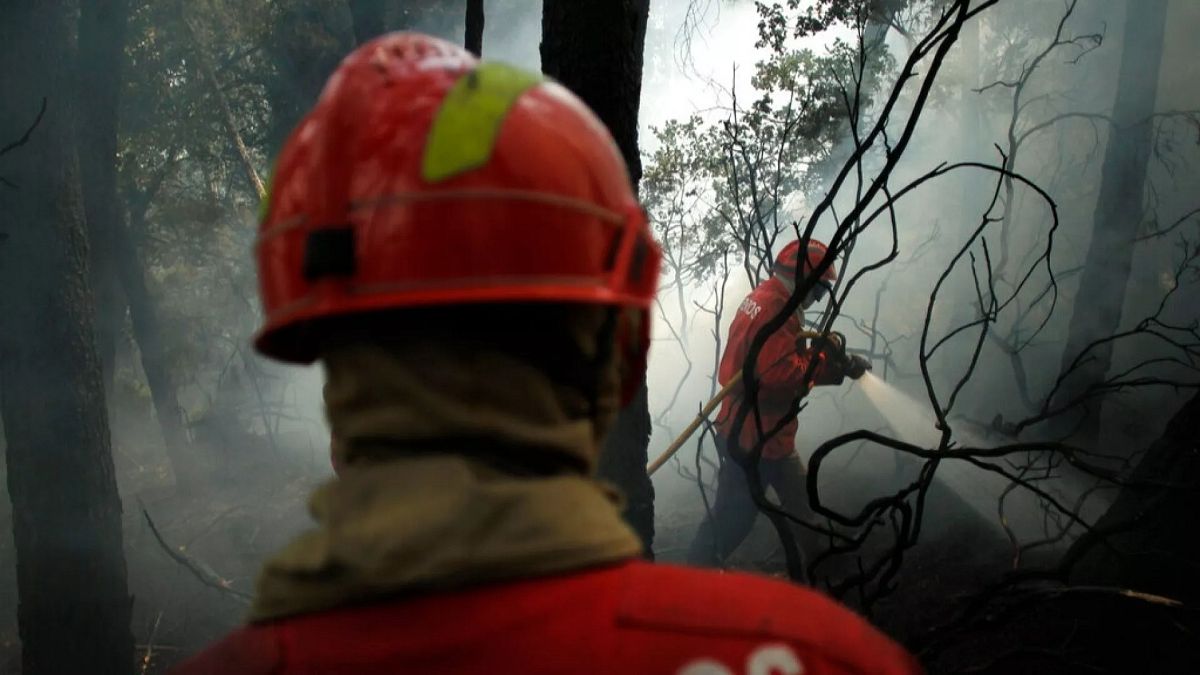

In recent days, various regions across the globe have experienced significant environmental challenges, as wildfires and floods draw attention to the increasing impacts of climate change. These events have emphasized the urgent need for comprehensive strategies to mitigate their effects and protect vulnerable communities and ecosystems.
In Portugal, over 1,000 firefighters are tirelessly working to control several major wildfires that have erupted in the Arouca, Ponte da Barca, and Penamacor areas. Weeks of sweltering heat have heightened the fire risk, prompting authorities to issue a yellow alert. The combination of high temperatures and strong winds has created dangerous conditions in the northern and central regions, complicating efforts to contain the blazes and protect communities.
Similarly, the eastern Mediterranean, encompassing regions like Greece and Türkiye, is witnessing its own battle with summer wildfires. Experts in the area have indicated that such fires are becoming an increasing concern, exacerbated by the ongoing effects of climate change. This trend highlights the necessity for preparedness and safety measures for both residents and tourists during the summer months, a crucial period for economic and social activity.
In juxtaposition, across the continents in China, devastating floods have significantly impacted Beijing and its neighboring areas. With districts reporting rainfall as high as 543 mm, the city has evacuated around 80,000 residents to avert further casualties. Over 30 individuals have sadly lost their lives due to the severe flooding, underscoring the vulnerabilities faced by densely populated urban areas in the wake of extreme weather events.
Meanwhile, the Democratic Republic of the Congo (DRC) is undertaking initiatives that could further impact the environment on a substantial scale. Plans to open more than half of the country’s territory, including sensitive gorilla habitats and pristine forests, for oil and gas exploration, raise significant concerns among conservationists. The areas in question are rich in carbon reserves and home to many unique species, including endangered lowland gorillas, making them critical both ecologically and environmentally.
These recent instances of natural events and policy decisions underscore a broader global narrative about the delicate balance needed between development, conservation, and the effects of climate change. They illustrate the myriad challenges countries face as they strive to safeguard their environments while addressing growth and sustainability. It is increasingly clear that measures to mitigate the impacts of climate change, preserve biodiversity, and implement effective disaster management strategies are indispensable components of safeguarding both human and ecological health for the future.
In light of these events, there is a growing consensus on the necessity for international collaboration and increased investment in sustainable practices to address the roots of climate change. Communities and policymakers worldwide are urged to innovate and adapt to these pressing challenges, drawing on scientific insights and traditional knowledge to craft resilient systems capable of withstanding and adapting to the shifting environmental landscape.
Source: {link}
